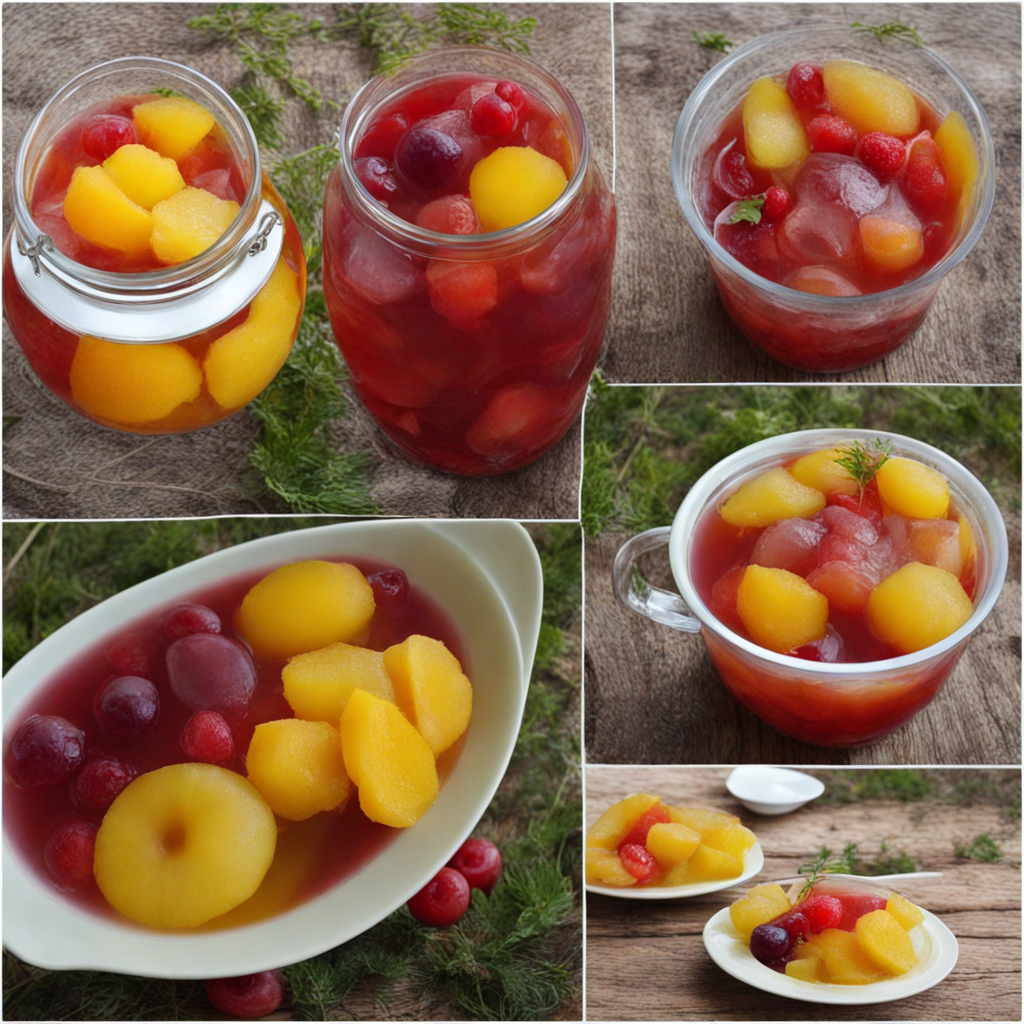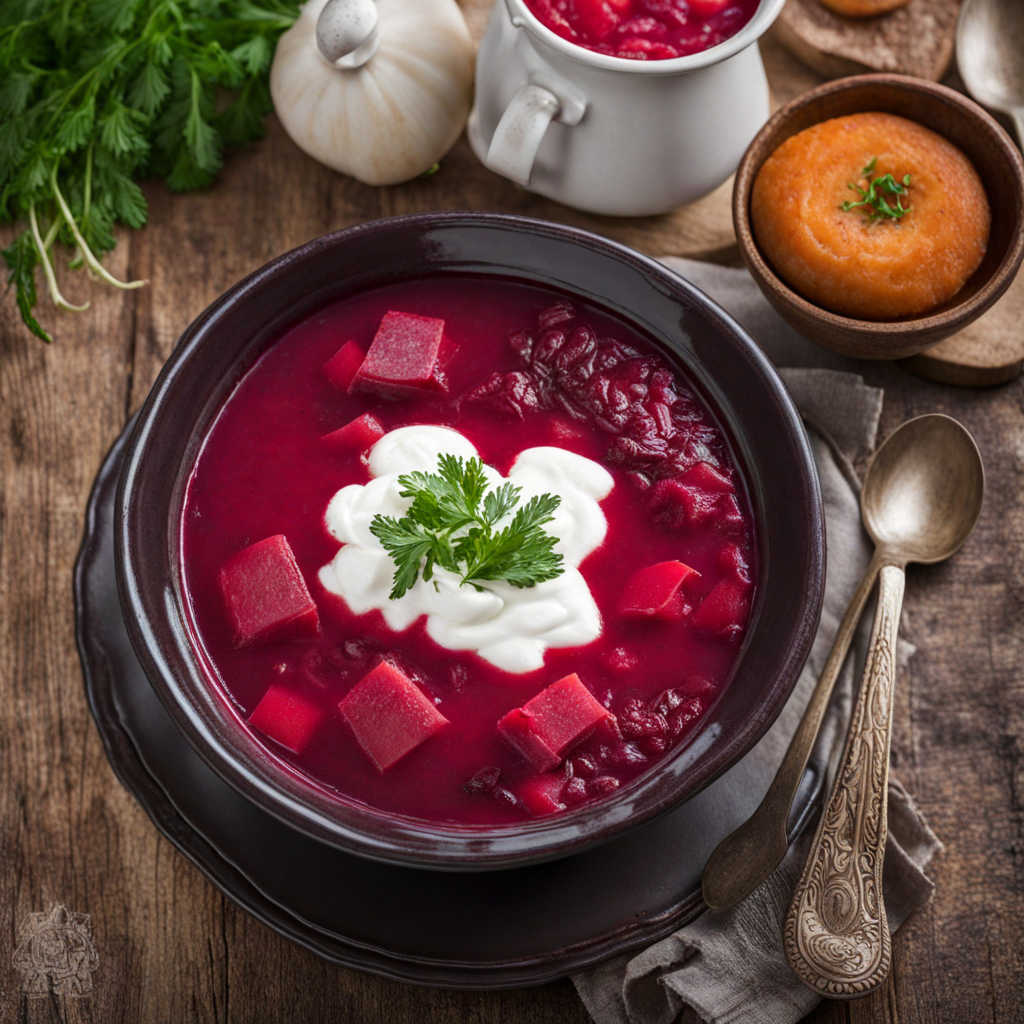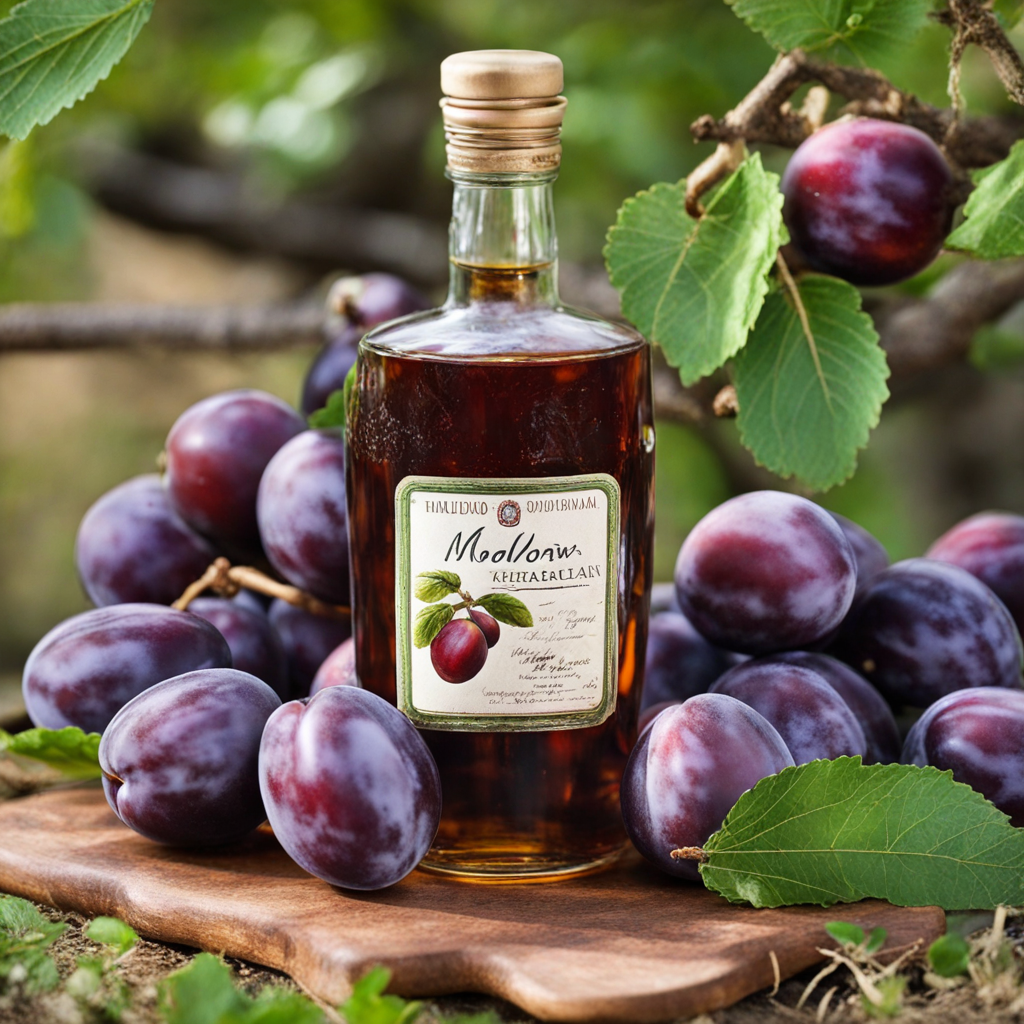Compot
Компот, a traditional beverage originating from Moldova, is a sweet fruit drink made by simmering various fruits, often complemented by spices and sugar. This delightful concoction has its roots deeply embedded in the culinary practices of Eastern Europe, particularly in the countries that were once part of the Soviet Union. The name "компот" itself derives from the French word "compote," which refers to a dish made of stewed fruits. Historically, компот was a staple in Moldovan households, especially during the summer months when fruits were abundant. It served not only as a refreshing drink but also as a means of preserving seasonal fruits for consumption throughout the colder months. The flavor profile of компот is largely determined by the fruits used, which can range from sweet to tart, depending on the season and availability. Common fruits include apples, cherries, plums, apricots, and berries, each contributing its unique essence to the drink. The result is a harmonious blend of flavors, often characterized by a delicate sweetness balanced with slight acidity. When served chilled, компот can be a refreshing thirst quencher, perfect for hot summer days, while a warm version can provide comfort during the colder months. The preparation of компот is relatively simple, making it an accessible beverage for many. To create this delightful drink, one typically begins by selecting fresh, ripe fruits. The fruits are then washed, pitted or chopped as necessary, and placed in a large pot. Water is added, along with sugar
How It Became This Dish
The History of Компот: A Sweet Legacy from Moldova #### Origins and Early Beginnings Компот, a traditional fruit drink, has deep roots in Eastern European culinary traditions, with Moldova being one of its most ardent proponents. The word "компот" itself derives from the Latin "compositus," which means "compound" or "mixture." This name aptly reflects the nature of the drink, which is essentially a mixture of various fruits boiled in water, often sweetened with sugar and flavored with spices. Historically, the preparation of компот can be traced back to ancient times when fruits were preserved in various forms to ensure sustenance during the harsh winters. The early Slavic tribes, who inhabited the region that is now Moldova, relied heavily on seasonal fruits like cherries, plums, apples, and apricots. These fruits were abundant in the temperate climate of the region, making them a natural choice for preservation methods. The practice of cooking fruits in water was particularly practical, as it allowed families to enjoy the flavors of summer long into the cold months. #### Cultural Significance In Moldova, компот is more than just a refreshing beverage; it is a symbol of hospitality and family tradition. The drink is often served during family gatherings, celebrations, and religious holidays, embodying the warmth and togetherness of these occasions. It is not uncommon for Moldovan households to prepare large batches of компот to share with guests, showcasing the culinary heritage and the importance of community in Moldovan culture. During the Soviet era, компот became a staple in school cafeterias and public dining halls, further embedding it into the national consciousness. It was a symbol of domesticity, associated with home-cooked meals and the nurturing aspect of Moldovan culture. The drink often accompanied hearty meals of stews, meats, and bread, providing a sweet contrast to the savory flavors of traditional dishes. #### Development Through the Ages As Moldova's culinary landscape evolved, so too did the preparation of компот. Initially, it was a simple concoction of whatever fruits were available, boiled with water and sugar. However, as trade routes opened and influences from neighboring countries seeped in, variations of компот began to emerge. In the early 20th century, as Moldova experienced political and social changes, the recipe for компот adapted accordingly. New fruits were introduced, including exotic varieties such as bananas and oranges, which were not locally grown but became available through imports. This blending of local and foreign ingredients led to exciting new flavors and combinations. The post-Soviet era brought with it a resurgence of interest in traditional Moldovan cuisine, with many families rediscovering age-old recipes that had been passed down through generations. In this period, компот saw a revival in its popularity as people sought comfort in familiar flavors amidst the chaos of change. Homemade компот became a way for families to reconnect with their roots, and many began experimenting with new ingredients while still honoring traditional methods. #### Modern Interpretations Today, компот continues to be an integral part of Moldovan culinary culture, yet it has also embraced modern interpretations. The traditional method of boiling fruits remains popular, but contemporary versions often incorporate innovative techniques such as cold brewing or infusing. Many Moldovans now create компот with a variety of fresh herbs and spices, adding layers of complexity to the drink. The rise of health consciousness has also influenced the way компот is prepared. Many people are opting for reduced sugar versions or substituting sugar with natural sweeteners like honey or agave syrup. Additionally, the use of organic fruits and local produce has gained traction, reflecting a broader trend towards sustainable eating practices. In urban centers, компот is increasingly featured in cafes and restaurants, often presented as a gourmet beverage. Chefs experiment with unusual combinations, such as pairing berries with cardamom or adding ginger for a zesty twist. These modern adaptations not only celebrate the traditional roots of компот but also cater to a younger audience eager for novel experiences. #### Conclusion: A Drink of Unity The evolution of компот in Moldova mirrors the country’s journey through history, culture, and culinary practices. From its humble beginnings as a means of preserving fruit to its status as a beloved beverage shared among family and friends, компот encapsulates the essence of Moldovan hospitality and identity. As it continues to adapt to contemporary tastes while honoring its traditional roots, компот remains a testament to the rich agricultural heritage of Moldova and the enduring significance of food as a means of connection. Whether enjoyed at a festive gathering, a family meal, or in a trendy café, компот serves as a delicious reminder of the importance of community, culture, and the sweet flavors of life. This cherished drink is more than just a recipe; it is a narrative of resilience, adaptation, and the timeless joy found in sharing food with loved ones.
You may like
Discover local flavors from Moldova







